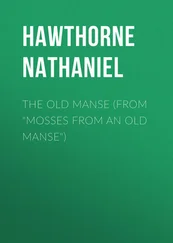Nathaniel Hawthorne - Our Old Home - A Series of English Sketches
Здесь есть возможность читать онлайн «Nathaniel Hawthorne - Our Old Home - A Series of English Sketches» — ознакомительный отрывок электронной книги совершенно бесплатно, а после прочтения отрывка купить полную версию. В некоторых случаях можно слушать аудио, скачать через торрент в формате fb2 и присутствует краткое содержание. Жанр: literature_19, foreign_antique, foreign_prose, на английском языке. Описание произведения, (предисловие) а так же отзывы посетителей доступны на портале библиотеки ЛибКат.
- Название:Our Old Home: A Series of English Sketches
- Автор:
- Жанр:
- Год:неизвестен
- ISBN:нет данных
- Рейтинг книги:4 / 5. Голосов: 1
-
Избранное:Добавить в избранное
- Отзывы:
-
Ваша оценка:
- 80
- 1
- 2
- 3
- 4
- 5
Our Old Home: A Series of English Sketches: краткое содержание, описание и аннотация
Предлагаем к чтению аннотацию, описание, краткое содержание или предисловие (зависит от того, что написал сам автор книги «Our Old Home: A Series of English Sketches»). Если вы не нашли необходимую информацию о книге — напишите в комментариях, мы постараемся отыскать её.
Our Old Home: A Series of English Sketches — читать онлайн ознакомительный отрывок
Ниже представлен текст книги, разбитый по страницам. Система сохранения места последней прочитанной страницы, позволяет с удобством читать онлайн бесплатно книгу «Our Old Home: A Series of English Sketches», без необходимости каждый раз заново искать на чём Вы остановились. Поставьте закладку, и сможете в любой момент перейти на страницу, на которой закончили чтение.
Интервал:
Закладка:
For a man, with a natural tendency to meddle with other people's business, there could not possibly be a more congenial sphere than the Liverpool Consulate. For myself, I had never been in the habit of feeling that I could sufficiently comprehend any particular conjunction of circumstances with human character, to justify me in thrusting in my awkward agency among the intricate and unintelligible machinery of Providence. I have always hated to give advice, especially when there is a prospect of its being taken. It is only one-eyed people who love to advise, or have any spontaneous promptitude of action. When a man opens both his eyes, he generally sees about as many reasons for acting in any one way as in any other, and quite as many for acting in neither; and is therefore likely to leave his friends to regulate their own conduct, and also to remain quiet as regards his especial affairs till necessity shall prick him onward. Nevertheless, the world and individuals flourish upon a constant succession of blunders. The secret of English practical success lies in their characteristic faculty of shutting one eye, whereby they get so distinct and decided a view of what immediately concerns them that they go stumbling towards it over a hundred insurmountable obstacles, and achieve a magnificent triumph without ever being aware of half its difficulties. If General McClellan could but have shut his left eye, the right one would long ago have guided us into Richmond. Meanwhile, I have strayed far away from the Consulate, where, as I was about to say, I was compelled, in spite of my disinclination, to impart both advice and assistance in multifarious affairs that did not personally concern me, and presume that I effected about as little mischief as other men in similar contingencies. The duties of the office carried me to prisons, police-courts, hospitals, lunatic asylums, coroner's inquests, death-beds, funerals, and brought me in contact with insane people, criminals, ruined speculators, wild adventurers, diplomatists, brother-consuls, and all manner of simpletons and unfortunates, in greater number and variety than I had ever dreamed of as pertaining to America; in addition to whom there was an equivalent multitude of English rogues, dexterously counterfeiting the genuine Yankee article. It required great discrimination not to be taken in by these last-mentioned scoundrels; for they knew how to imitate our national traits, had been at great pains to instruct themselves as regarded American localities, and were not readily to be caught by a cross-examination as to the topographical features, public institutions, or prominent inhabitants of the places where they pretended to belong. The best shibboleth I ever hit upon lay in the pronunciation of the word "been," which the English invariably make to rhyme with "green," and we Northerners, at least (in accordance, I think, with the custom of Shakespeare's time), universally pronounce "bin."
All the matters that I have been treating of, however, were merely incidental, and quite distinct from the real business of the office. A great part of the wear and tear of mind and temper resulted from the bad relations between the seamen and officers of American ships. Scarcely a morning passed, but that some sailor came to show the marks of his ill-usage on shipboard. Often, it was a whole crew of them, each with his broken head or livid bruise, and all testifying with one voice to a constant series of savage outrages during the voyage; or, it might be, they laid an accusation of actual murder, perpetrated by the first or second officers with many blows of steel-knuckles, a rope's end, or a marline-spike, or by the captain, in the twinkling of an eye, with a shot of his pistol. Taking the seamen's view of the case, you would suppose that the gibbet was hungry for the murderers. Listening to the captain's defence, you would seem to discover that he and his officers were the humanest of mortals, but were driven to a wholesome severity by the mutinous conduct of the crew, who, moreover, had themselves slain their comrade in the drunken riot and confusion of the first day or two after they were shipped. Looked at judicially, there appeared to be no right side to the matter, nor any right side possible in so thoroughly vicious a system as that of the American mercantile marine. The Consul could do little, except to take depositions, hold forth the greasy Testament to be profaned anew with perjured kisses, and, in a few instances of murder or manslaughter, carry the case before an English magistrate, who generally decided that the evidence was too contradictory to authorize the transmission of the accused for trial in America. The newspapers all over England contained paragraphs, inveighing against the cruelties of American shipmasters. The British Parliament took up the matter (for nobody is so humane as John Bull, when his benevolent propensities are to be gratified by finding fault with his neighbor), and caused Lord John Russell to remonstrate with our government on the outrages for which it was responsible before the world, and which it failed to prevent or punish. The American Secretary of State, old General Cass, responded, with perfectly astounding ignorance of the subject, to the effect that the statements of outrages had probably been exaggerated, that the present laws of the United States were quite adequate to deal with them, and that the interference of the British Minister was uncalled for.
The truth is, that the state of affairs was really very horrible, and could be met by no laws at that time (or I presume now) in existence. I once thought of writing a pamphlet on the subject, but quitted the Consulate before finding time to effect my purpose; and all that phase of my life immediately assumed so dreamlike a consistency that I despaired of making it seem solid or tangible to the public. And now it looks distant and dim, like troubles of a century ago. The origin of the evil lay in the character of the seamen, scarcely any of whom were American, but the offscourings and refuse of all the seaports of the world, such stuff as piracy is made of, together with a considerable intermixture of returning emigrants, and a sprinkling of absolutely kidnapped American citizens. Even with such material, the ships were very inadequately manned. The shipmaster found himself upon the deep, with a vast responsibility of property and human life upon his hands, and no means of salvation except by compelling his inefficient and demoralized crew to heavier exertions than could reasonably be required of the same number of able seamen. By law he had been intrusted with no discretion of judicious punishment, he therefore habitually left the whole matter of discipline to his irresponsible mates, men often of scarcely a superior quality to the crew. Hence ensued a great mass of petty outrages, unjustifiable assaults, shameful indignities, and nameless cruelty, demoralizing alike to the perpetrators and the sufferers; these enormities fell into the ocean between the two countries, and could be punished in neither. Many miserable stories come back upon my memory as I write; wrongs that were immense, but for which nobody could be held responsible, and which, indeed, the closer you looked into them, the more they lost the aspect of wilful misdoing and assumed that of an inevitable calamity. It was the fault of a system, the misfortune of an individual. Be that as it may, however, there will be no possibility of dealing effectually with these troubles as long as we deem it inconsistent with our national dignity or interests to allow the English courts, under such restrictions as may seem fit, a jurisdiction over offences perpetrated on board our vessels in mid-ocean.
In such a life as this, the American shipmaster develops himself into a man of iron energies, dauntless courage, and inexhaustible resource, at the expense, it must be acknowledged, of some of the higher and gentler traits which might do him excellent service in maintaining his authority. The class has deteriorated of late years on account of the narrower field of selection, owing chiefly to the diminution of that excellent body of respectably educated New England seamen, from the flower of whom the officers used to be recruited. Yet I found them, in many cases, very agreeable and intelligent companions, with less nonsense about them than landsmen usually have, eschewers of fine-spun theories, delighting in square and tangible ideas, but occasionally infested with prejudices that stuck to their brains like barnacles to a ship's bottom. I never could flatter myself that I was a general favorite with them. One or two, perhaps, even now, would scarcely meet me on amicable terms. Endowed universally with a great pertinacity of will, they especially disliked the interference of a consul with their management on shipboard; notwithstanding which I thrust in my very limited authority at every available opening, and did the utmost that lay in my power, though with lamentably small effect, towards enforcing a better kind of discipline. They thought, no doubt (and on plausible grounds enough, but scarcely appreciating just that one little grain of hard New England sense, oddly thrown in among the flimsier composition of the Consul's character), that he, a landsman, a bookman, and, as people said of him, a fanciful recluse, could not possibly understand anything of the difficulties or the necessities of a shipmaster's position. But their cold regards were rather acceptable than otherwise, for it is exceedingly awkward to assume a judicial austerity in the morning towards a man with whom you have been hobnobbing over night.
Читать дальшеИнтервал:
Закладка:
Похожие книги на «Our Old Home: A Series of English Sketches»
Представляем Вашему вниманию похожие книги на «Our Old Home: A Series of English Sketches» списком для выбора. Мы отобрали схожую по названию и смыслу литературу в надежде предоставить читателям больше вариантов отыскать новые, интересные, ещё непрочитанные произведения.
Обсуждение, отзывы о книге «Our Old Home: A Series of English Sketches» и просто собственные мнения читателей. Оставьте ваши комментарии, напишите, что Вы думаете о произведении, его смысле или главных героях. Укажите что конкретно понравилось, а что нет, и почему Вы так считаете.












